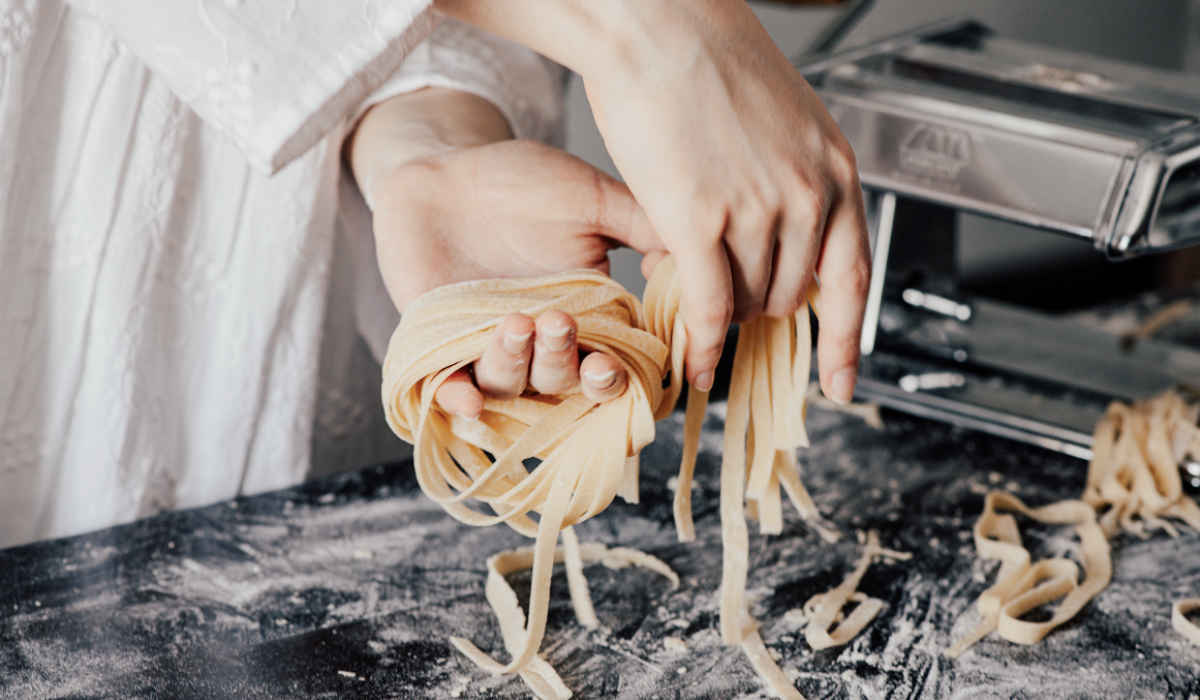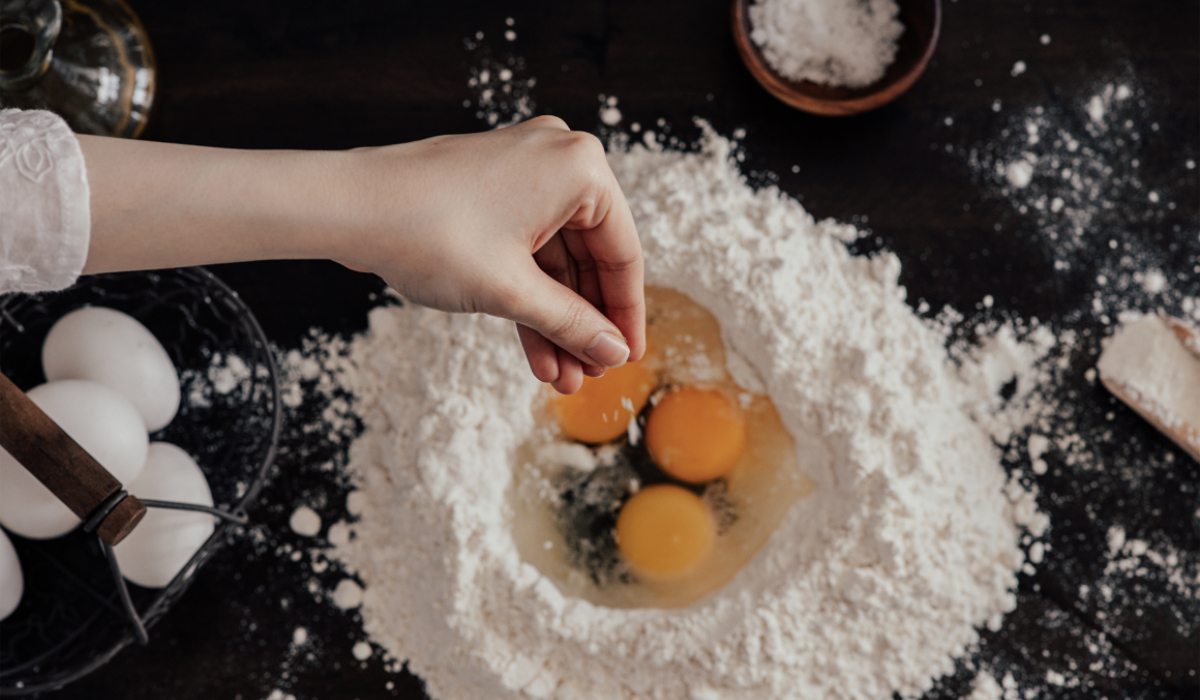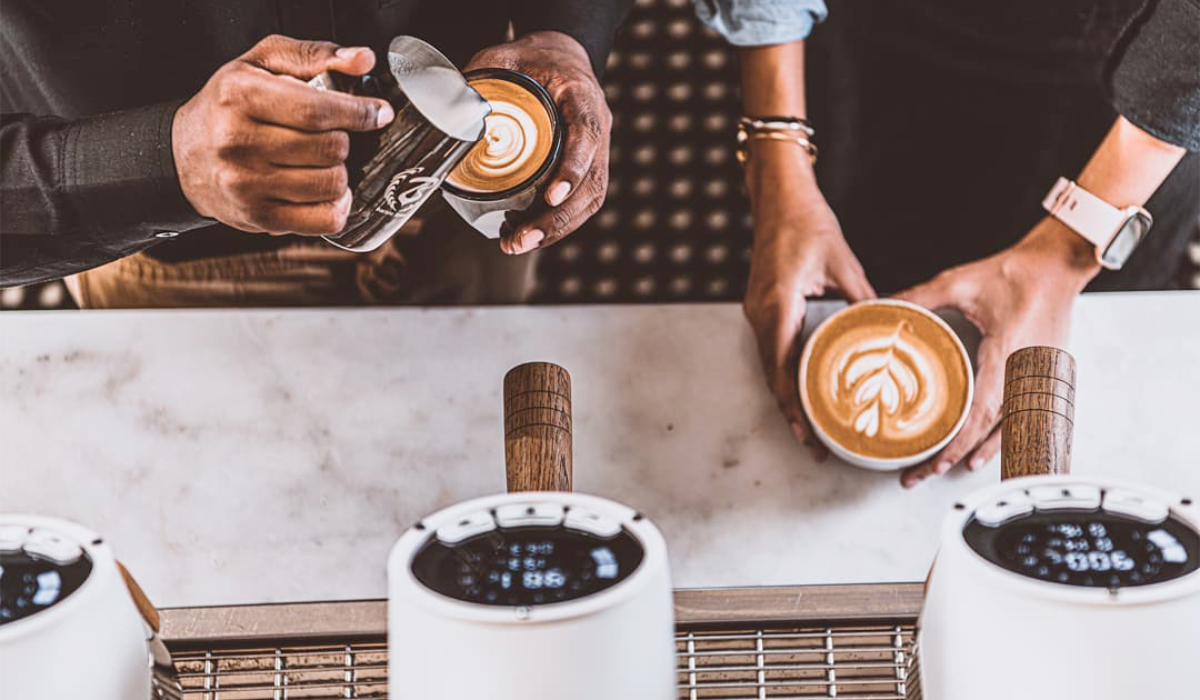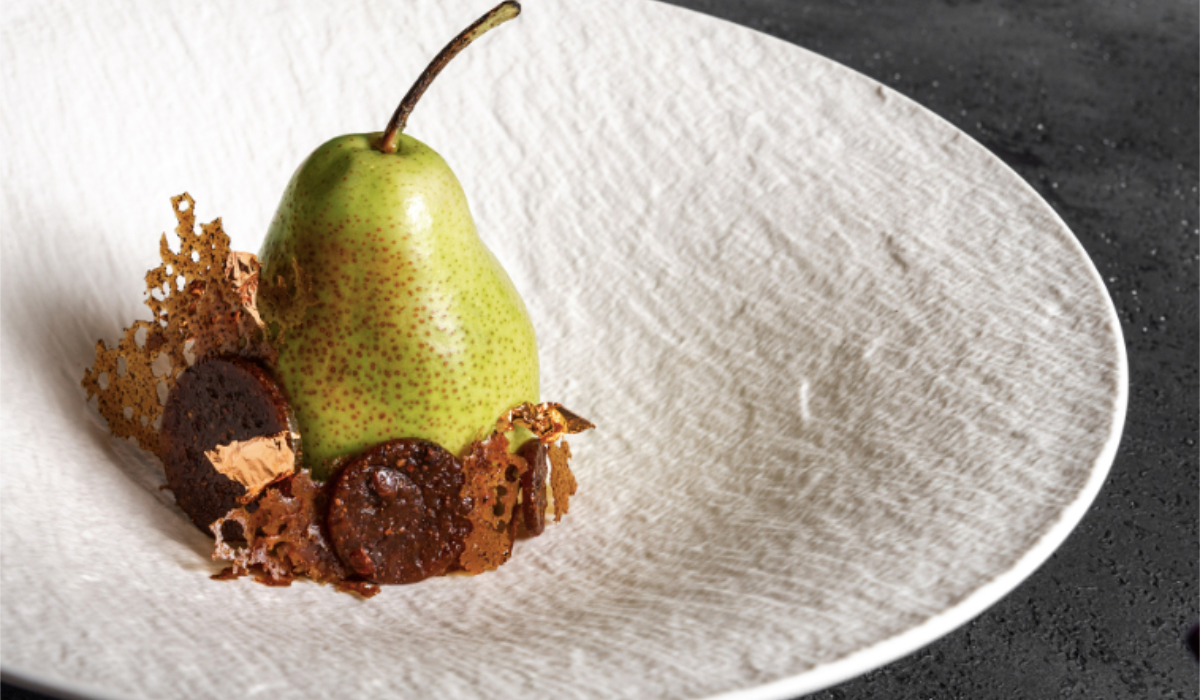JEDDAH: In the Kingdom’s culinary art scene, food styling, though a key ingredient, remains a niche career. However, one culinary artist is quickly making a name for herself by plating with style.
Rawan Shouman’s interest in food styling — the process of staging food to look as attractive and appealing as possible for photography or video — began during her university days, shortly before the global pandemic, when she decided to help out a photographer friend.
“With a passion for cooking and photography, styling seemed like a natural fit,” she told Arab News.

Food styling is the process of staging food to look as attractive and appealing as possible for photography or video. (Instagram/r_a_shouman/Supplied)
Although a cooking background is not necessary for styling, it has proven to be a bonus in Shouman’s case. “Knowing how to speak the chef’s language and the photographer’s language is essential for communication,” she said.
Shouman said that she has “always loved cooking and photography, so styling seemed convenient as it combines both.”
The result is a career that combines food styling, set and props design, and creative direction.
HIGHLIGHTS
• With food styling relatively new in the Kingdom, Rawan Shouman faced challenges establishing herself professionally.
• In the past, the mainstream food photography standard was to aim for perfection, but now there is a trend toward a more natural aesthetic.
Shouman invested money she earned as a stylist in the specialist gear needed for photography and videography.
But with food styling relatively new in the Kingdom, she faced challenges establishing herself professionally.

Food styling is the process of staging food to look as attractive and appealing as possible for photography or video. (Instagram/r_a_shouman/Supplied)
“Most of us go in faking knowing what we are doing until we actually do,” she said. However, with hard work, determination, and a good portfolio, she convinced clients to work with her.
So, what exactly does a food stylist do? “We work with chefs to produce the best quality looking food, either in restaurants or on advertisement sets, where I hire a production chef on my team,” Shouman said. “With their culinary skills, and my styling tricks and vision, we develop the best-looking final products.”
Each project is different and has its own needs and budgets. A stylist’s work finishes at the end of the shoot, but Shouman also gets involved in pre and post-production.

Food styling is the process of staging food to look as attractive and appealing as possible for photography or video. (Instagram/r_a_shouman/Supplied)
“The creative process starts with the client’s needs, then comes idea formation and planning,” she said. “We prepare for the shoot needs from backgrounds, plates, everything. Then it is shoot day … sometimes we do trials before the shoot to perfect a method in styling.”
Shouman also looks for props that fit the project and recipes. “I keep in mind what other elements I want to add on set, so not just to provide plate options but also providing glasses, utensils, boards, and ramekins for sauces, garnishes, or ingredients,” she said.
When creating a visually appealing food setup, she considers textures, props for layering, and fabrics.
As our food industry evolves, it needs to be presented in a way that captures attention and showcases its uniqueness.
Rawan Shouman, Food stylist
She said that Santos Loo, a Los Angeles-based food stylist, “once mentioned that he thinks of textures, and I like to think in that way, too.”
In the past, the mainstream food photography standard was to aim for perfection, but now there is a trend toward a more natural aesthetic.

Food styling is the process of staging food to look as attractive and appealing as possible for photography or video. (Instagram/r_a_shouman/Supplied)
“Victoria Granof (the US-based food stylist) is the one who started defying these rules, and her style became more acceptable and in demand now,” Shouman added.
The Saudi stylist makes sure to stay updated with the latest trends and techniques by following artists she admires, and checking cookbooks, magazines, and websites.
“We are artists, we create trends, we don’t need to follow them, if you know what I mean,” she said.

Food styling is the process of staging food to look as attractive and appealing as possible for photography or video. (Instagram/r_a_shouman/Supplied)
Like a painter, her techniques and styles depend on the mood and feelings at the time of creating a plate or set. She is also an advocate for working ethically with less food waste, as well as finding and creating edible substitutes for chemicals that are usually used in styling.
Shouman is happy that creatives in the industry have the opportunity to show their talents, adding that it is necessary for the field to expand.
Food photoshoots “take place every day,” but, unfortunately, styling is not always asked for because of budgeting and a “what you see is what you get” approach, she said.
Shouman has worked with many leading figures, studios, businesses, and hotels, as well as local and international brands, including Al-Osra sugar, Wister, Rustic Grill, IKEA, Lallo Restaurant, Plan Burger, Savola, Nespresso, and Haagen-Dazs.
Shouman views food styling as an essential ingredient in Saudi Arabia’s growing culinary landscape.
“As our food industry evolves, it needs to be presented in a way that captures attention and showcases its uniqueness,” she said. “That is where food styling comes in … it helps to communicate the story behind the dish, enhancing its appeal and drawing people in.”
Asked about her future projects and plans, Shouman said: “I am always excited about the next project, meeting new people, and collaborating on creative endeavors. I am not one to follow rigid plans, I prefer to embrace new challenges and let inspiration guide my work.”
She added: “Inspiration is everywhere; you just need to be curious and open to it. I like to think in series — coming up with concepts, titles, and ideas for food photography and videography. I find inspiration in nature, movies, podcasts, and even in seemingly unrelated fields like car photoshoots or fashion shows.”
Shouman makes sure to document her ideas, even if they are not immediately applicable, believing it is a valuable practice for the creative mind.
One defining moment in her career was a project that pushed her out of her comfort zone. “I was getting started in photography and videography,” she recalled, “and my usual collaborators were unavailable. I had to rely on my skills and resourcefulness to complete the project. That experience taught me a lot about adaptability and independence.”
This anecdote highlights the career path of a food stylist — a constant pursuit of learning, growth, and creative expression.































